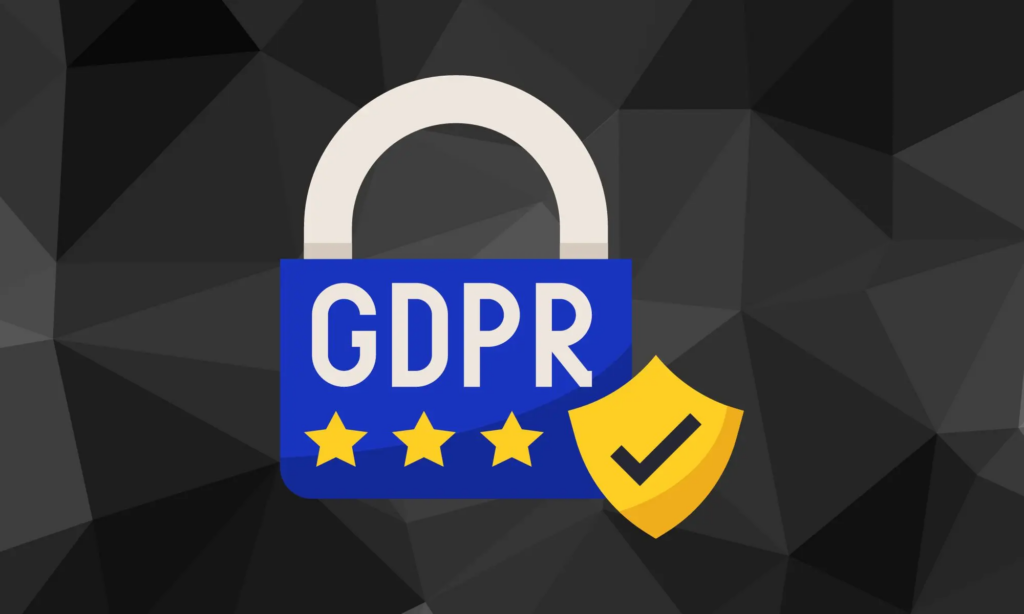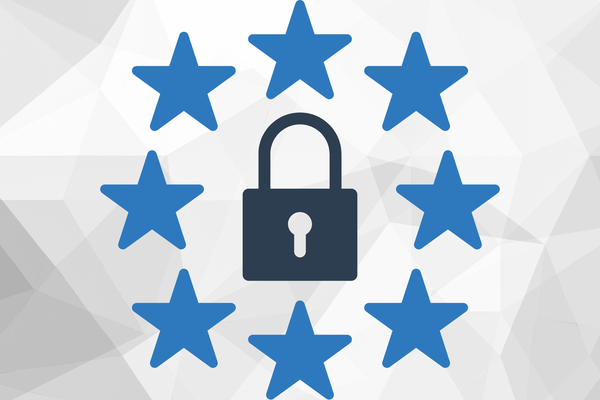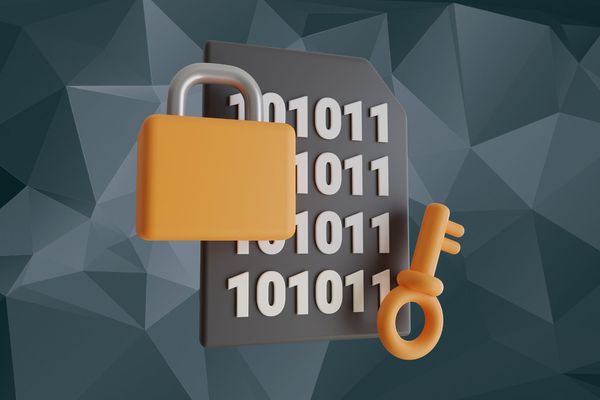
With regulations like the GDPR setting the standard, companies must ensure that their data is adequately secured.
One of the most critical security measures businesses need today is encryption. Unfortunately, this has a reputation for being unnecessary, complicated, or expensive.
In this article, we’ll explain the need for encryption in GDPR and give you the best practices that will help protect your customers’ data.
What is GDPR?
What is the GDPR (1).png

Rupert Brown, CTO and Founder at Evidology Systems, says:
“The General Data Protection Regulation (Regulation (EU) 2016/679, abbreviated GDPR) is a European Union regulation on information privacy in the European Union (EU) and the European Economic Area (EEA).”
The General Data Protection Regulation (GDPR) provides guidelines on how businesses can collect, store, use, or disclose their customers’ data. It gives individuals in the EU more control over their data.
GDPR applies to any organization, regardless of whether it is allocated in the EU or not, as long as it processes the personal data of EU citizens, and failure to comply with it can result in significant fines for the business but also loss of reputation and customer trust.
GDPR Principles
The GDPR is based on 7 fundamental principles that you must follow if you are applicable to the GDPR:
Lawfulness, Fairness, and Transparency
The first principle of GDPR states that all personal data must be collected and processed legally, fairly, and transparently.
Processing must have a legal basis under GDPR, be fair towards the data subject, and not be misleading or deceptive, and any information regarding data processing should be provided to customers clearly and easily understandable.
Purpose Limitation
Personal data should only be collected for a specific explicit and legitimate purpose and not further processed in a way incompatible with its original purpose.
The purpose must be defined at the time of data collection and clear from the start to align it with the individual’s reasonable expectations.
Data Minimization
Data controllers should aim to collect only the minimum amount of data required for the specific processing purpose, supporting the principles of data protection by default and by design.
This, in turn, limits the amount of personal data that could be lost or stolen in a data breach.
Accuracy
Data controllers must also ensure that their personal data is accurate and up-to-date.
Data controllers must take the necessary steps to promptly correct any inaccurate or incomplete data.
Storage Limitation
Data can only be stored while it is necessary for processing purposes and in a format that permits the identification of individuals.
When the data is no longer necessary for a specified purpose, data controllers should delete personal data.
Integrity and Confidentiality
Personal data can be processed only in a way that ensures the proper level of security and confidentiality for the individual.
As such, controllers need to protect their data from unauthorized and unlawful access, loss, or destruction by using appropriate security measures like encryption.
Accountability
Finally, the principle of accountability lays out the responsibilities of data controllers and their obligation to demonstrate compliance with data privacy regulations (such as GDPR)
GDPR Rights
The GDPR also grants the following data subject rights:
Right to Access: Individuals can obtain confirmation from businesses about whether their personal data is being processed and, if so, to access that data and receive relevant information about its use.
Right to Rectification: Individuals can request the correction of inaccurate or incomplete personal data, ensuring that the information held by businesses is up-to-date and reliable.
Right to Erasure: Also known as the “right to be forgotten,” individuals can request the deletion of their data under certain circumstances, such as when the data is no longer necessary or when consent is withdrawn.
Right to Restrict Processing: Individuals can request the limitation of processing of their personal data in certain situations, giving them more control over how their information is used.
Right to Object: Individuals have the right to object to processing their data, including for direct marketing purposes, and businesses must cease processing unless they can demonstrate compelling legitimate grounds.
Right to Data Portability: Individuals can receive their personal data in a structured, commonly used, and machine-readable format, allowing them to transfer it to another organization if desired.
What is Encryption?
Encryption is a process of converting readable data (plaintext) into an unreadable format (ciphertext).
This can be done using the same key to encrypt and decrypt the data (symmetric encryption) or a pair of keys, a public key for encryption and a private key for decryption (asymmetric encryption).
Symmetric encryption is generally faster between these two techniques, but asymmetric encryption is more secure. If you want to learn more about the pros and cons of both methods, check out this detailed guide here.
Encryption is vital in email communication, as we often exchange sensitive data through email, and cybercriminals can intercept that data. Using encryption, email data, both in transit and at rest, becomes much more secure.
The Significance of GDPR Encryption
Rupert Brown says:
“GDPR does not specifically mandate any particular level of encryption or any other specific technical standard because they may become obsolete quickly due to technological change.”
However, it still strongly recommends it as a security measure to protect personal data and comply with its requirements.
In particular, Article 32 of GDPR lists encryption as one of the technical and organizational measures data controllers and processors should implement to ensure adequate security levels.
For a business handling customer data, encryption can serve as an essential tool to protect that data for several reasons:
Data Protection
By converting plaintext data into an unreadable ciphertext, companies can protect their customers’ privacy when their personal data is stolen or accessed unlawfully.
Risk Mitigation
Another reason to implement encryption for GDPR-conscious organizations is that it helps mitigate risks that come with data processing.
Confidentiality and Integrity
Encryption also ensures that the data can be processed to protect it from unauthorized and unlawful access, loss, destruction, or damage, thus helping the company follow the principle of integrity and confidentiality.
Cross-border Data Transfer
Cross-border data transfers often pose a risk to the company and must include appropriate safeguards. Encryption can also facilitate safer transfers and ensure data protection in transit.
Demonstrate Compliance
Encrypting data and maintaining records of it also showcases the organization’s compliance efforts and that it is taking appropriate steps to protect the data it collects, stores, and discloses during inspections and audits.
Building Trust
Finally, a company that employs encryption is committed to data privacy and security, building trust with its customers.
Want to ensure your data is encrypted, and your company complies with the GDPR? Contact us now for a complimentary consultation.
GDPR Encryption Best Practices
The Significance of GDPR Encryption.jpg

Although the GDPR does not outline specific technical practices you must enforce in your company, we highly recommend the following given today’s digital landscape.
Implement End-to-End Encryption
When disclosing it with third parties, make sure to encrypt sensitive data you are processing, such as personal identifiers and financial information.
End-to-end encryption is vital for GDPR compliance. End-to-end encryption ensures data gets encrypted at its origin and only decrypted at its intended destination.
It prevents unauthorized access during data transmission and protects your customers’ data against breaches.
Use the Best Encryption Algorithm and Method for Your Business
Several encryption algorithms exist, including the Advanced Encryption Standard (AES) (used by the American government), RSA, and others. These algorithms can use either symmetric encryption, in which the sender and the receiver share the same key, or asymmetric encryption, which uses a pair of keys (private and public).
There’s no “best encryption algorithm” for everyone. Instead, you should consider your business needs to learn what works best for you.
The same goes for symmetric vs asymmetric encryption. Neither is “better” than the other. Symmetric encryption is faster but more accessible to break since there’s only one key, while asymmetric is slower but more secure.
Encrypt Data at Rest and in Transit
Encrypt data both at rest and in transit.
Encrypting data at rest will safeguard any data you have stored, such as on your servers, storage devices, or databases. This is a crucial step to protect data in a data breach. Even if someone manages to access the data without authorization, they won’t be able to do anything with it without decrypting it.
Similarly, if you’re sharing or disclosing data, it’s important to encrypt it in transit to protect it from Man-in-the-Middle attacks and similar threats.
Conduct Regular Security Audits and Updates
As cybersecurity threats your business faces evolve constantly, so should your security practices.
You should regularly review your security protocols, update software, and patch systems to identify security vulnerabilities better and protect your customers’ personal data under GDPR standards.
Use a Private and Secure Email Service: Mailfence.com
Finally, for companies that seek to achieve and maintain GDPR compliance, data privacy and security obviously play a crucial role, and using an email service with a strong focus on both is imperative.
Mailfence is a fully GDRP-compliant email service committed to data privacy through encryption and other features, like digital signatures and OpenPGP key management.
Furthermore, Mailfence also makes unauthorized data access impossible, as no one, including Mailfence, can read your encrypted emails. All of this makes it an excellent choice for complaint-conscious companies.
Frequently Asked Questions
Does the GDPR require encryption?
Under Article 32, GDPR requires organizations to “implement appropriate technical and organizational measures” in order to secure individuals’ personal information, which can include using tools like anonymization or pseudonymisation techniques such as encryption.
Learn more about data protection services in this article.
Do I have to encrypt emails under GDPR?
The GDPR does not specifically require email encryption, but it mandates organizations to implement appropriate technical and organizational measures to ensure a level of security appropriate for the risk.
Therefore, if sending personal data via email is necessary for your organization’s operations, you might consider encrypting those emails as part of ensuring secure transmission.
One of the most common types of GDPR-related emails you’ll have to do are DSARs. Learn how to manage them here.
Does GDPR only protect digitally stored data?
No, the GDPR applies to both digital and physical data. It covers all types of storage where personal information is kept – this means it’s not just applicable to electronic databases or email marketing software but also to paper files stored in an office environment as well.
Learn more about GDPR data inventory here – an essential part of data protection.
How Can Captain Compliance Help with GDPR Encryption?
Captain Compliance can help you navigate the complexities of GDPR encryption effortlessly.
Our team, with years of compliance experience, will assist your business in employing effective technical and organizational measures as stated under Article 32.